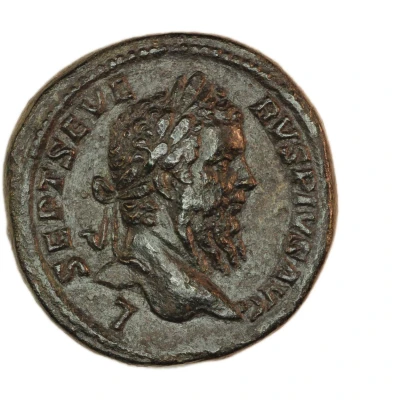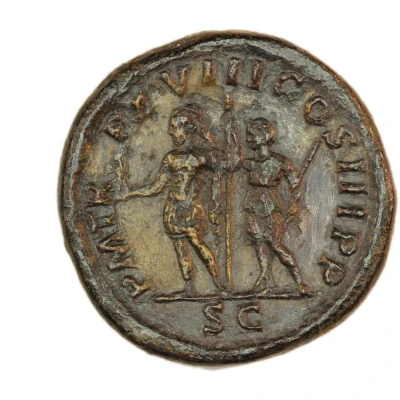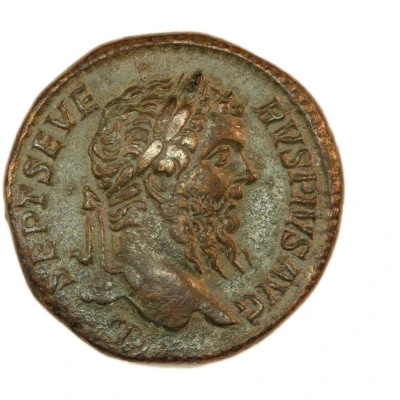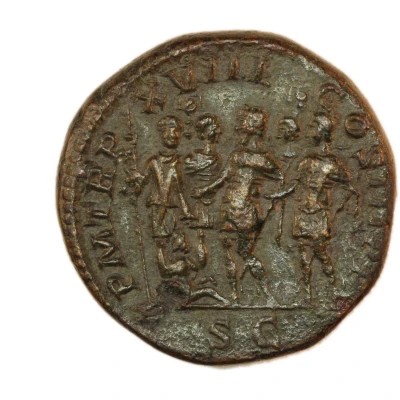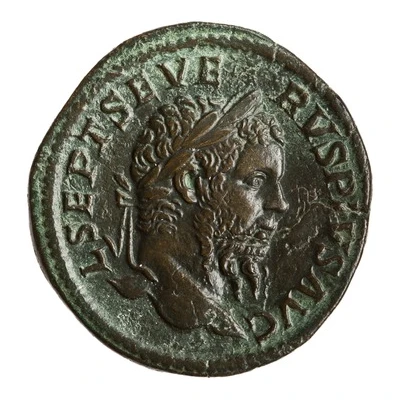
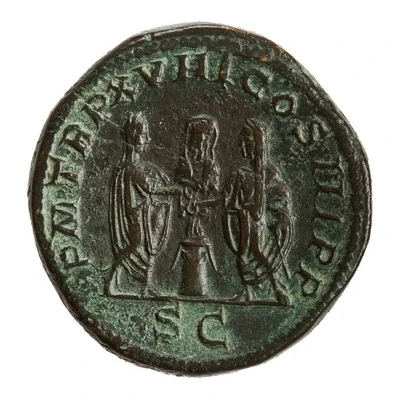

© American Numismatic Society (ANS)
Sestertius - Septimius Severus and Caracalla P M TR P XVIII COS III P P S C; Pietas and Concordia
210 year| Bronze | 24.4 g | 32 mm |
| Issuer | Rome › Roman Empire (27 BC - 395 AD) |
|---|---|
| Emperor | Septimius Severus (Lucius Septimius Severus) (193-211) |
| Type | Standard circulation coin |
| Year | 210 |
| Value | 1 Sestertius = ¼ Denarius |
| Currency | Denarius, Reform of Augustus (27 BC – AD 215) |
| Composition | Bronze |
| Weight | 24.4 g |
| Diameter | 32 mm |
| Shape | Round (irregular) |
| Technique | Hammered |
| Demonetized | Yes |
| Updated | 2024-10-06 |
| Numista | N#270268 |
|---|---|
| Rarity index | 97% |
Reverse
Septimius Severus, veiled, togate, standing left, sacrificing out of patera in right hand over tripod in centre, and holding roll in left hand; before him, on left, Caracalla, veiled, togate, standing right, extending right hand over tripod; behind and between them, Pietas or Concordia (?).
Script: Latin
Lettering: P M TR P XVIII COS III P P S C
Translation:
Pontifex Maximus, Tribunicia Potestate Octava Decima, Consul Tertium, Pater Patriae. Senatus Consultum.
High priest, holder of tribunician power for the 18th time, consul for the third time, father of the nation. Decree of the senate.
Comment
Mass varies: 18.01–29.99 g;Diameter varies: 30–34 mm;
Example of this type:
American Numismatic Society (ANS)
Source:
Online Coins of the Roman Empire (OCRE)
Interesting fact
One interesting fact about this coin is that it features an image of the Roman goddess Pietas, who represents duty, loyalty, and devotion, on one side, and an image of the Roman goddess Concordia, who represents harmony and unity, on the other side. This coin was minted during the reign of Emperor Septimius Severus and his son Caracalla, who ruled the Roman Empire from 193 to 211 AD. The coin's design highlights the importance of these virtues in maintaining a strong and harmonious society, which was a key aspect of Roman culture and values.
